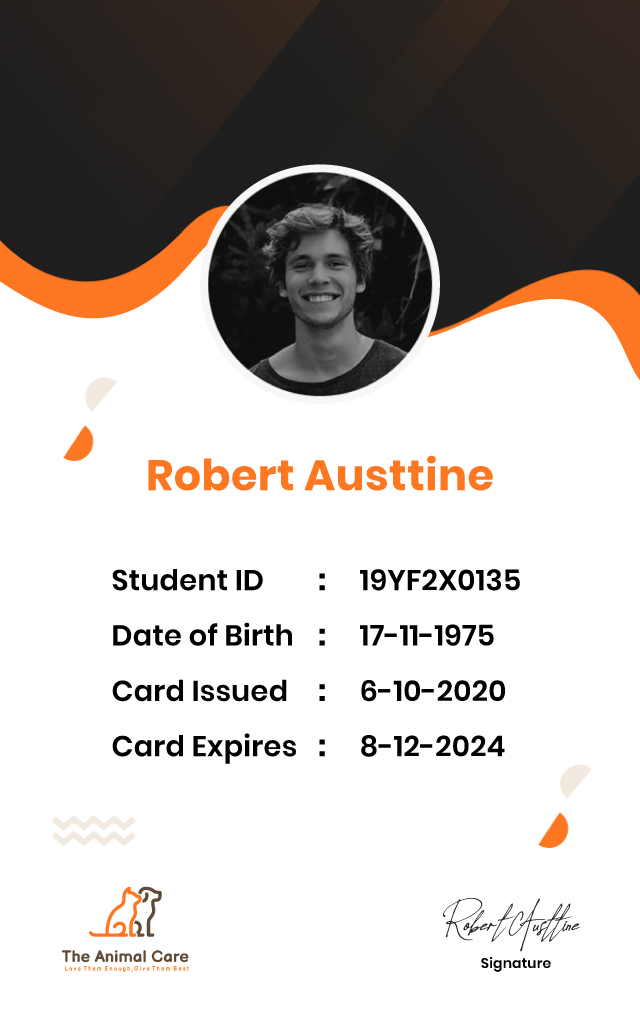
Animal psychology, often known as Comparative Psychology, is a multidisciplinary study that analyses animals’ behaviour and cognitive processes. This field’s philosophy is derived from several related fields of study.
Ethology, General Psychology, and Evolutionary Biology are among the topics of investigation. Animal Psychology findings and inquiries could significantly impact our understanding of behaviour across species and human social sciences.
Animal psychologists operate in zoos, nature reserves, and other animal parks to watch, investigate, and promote animal welfare in the real world. Zoos, in particular, have embraced animal psychology’s results by implementing enrichment programmes such as toys and games and simple problem-solving puzzles to allow animals to earn snacks. This has arisen as a result of worries for animal mental health. They’re also finding work in the veterinary field to treat mental illnesses in animals alongside those who treat physical ones. Animal psychologists conduct observations and design plans centred on the animal’s psychological well-being in each scenario.
Table of Contents
An Animal Psychologist’s Job
An animal psychologist is well-versed in animal psychology and behaviour. They can assist in the diagnosis of animal illnesses and point out unusual behaviour. Animal psychologists can often help solve or at least alleviate the symptoms of some animal diseases or health issues.
Zoos and pet owners frequently hire animal psychologists to solve frustrating animal problems or assess animals’ living situations to identify potential issues and stresses. Depending on the job, different levels of education are required, but most jobs require some level of higher education.
Animal psychologists are sometimes hired by government bodies and businesses to investigate the effects of an external influence on an animal’s natural behaviour. For example, an animal psychologist might be employed by a company researching medicine and interested in the effects on animals.
The animal psychologist’s job in this scenario is to figure out how the external factor affects the usual equation. Of course, drugs and diseases aren’t the only external elements to be concerned about. Organizations are frequently interested in monitoring specific animal populations to verify that their behaviour does not deviate from the norm.
To handle common house-pet issues, an animal psychologist can act as an animal behaviour specialist. An animal psychologist evaluates and treats shy or possibly aggressive dogs, cats with obsessive chewing disorders, and other animal issues. Unless their efforts get them a television show or work on a movie production, this is one of the less lucrative careers available to animal psychologists. The educational background required for this type of employment varies.
An animal psychologist may work with a zoo or other animal-housing organisation to ensure that the animals are kept in healthy conditions. Pet psychologists, for example, are usually well-versed in which conditions are safe and stress-free for various animal species. Animal psychologists are also frequently tasked with making animal settings more stimulating and healthful for the creatures who inhabit them. This can include employing knowledge of an animal’s natural feeding patterns to make feeding the animal more realistic in an artificial setting.
The following are some of the responsibilities listed in the most recent Animal Psychologist job listings:
1. Observing and documenting animal behaviour
2. Examine common and unique animal behaviour and how animals interact with one another, their surroundings, and strategies for changing animal behaviour.
3. Present their animal research findings in the form of scholarly papers, essays, and speaking engagements.
4. Conduct training programmes to help animals develop or maintain desired behaviours.
5. Teach, and lecture students enrolled in animal behaviour courses, such as bachelor’s degrees in animal behaviour.
6. Participate in animal tissue, sample, or behaviour study in the lab.
7. Collaborate on research projects with other scientists, including studying animals in their natural habitat.
8. Investigate how animals interact with humans and other animals to diagnose medical illnesses or diseases like anxiety and hostility.
Animal Behavior: An Overview
The study of animal behaviour is critical for human behavioural research to preserve a species or understand how an animal’s behaviour aids its survival. For example, studying how animals react in stressful situations can assist in the development of a solution for humans in similar cases. In addition, understanding animal behaviour could lead to new ways of dealing with depression, anxiety, and other mental health issues.
Biology and the environment influence animal behaviour, whereas external or internal stimuli cause behavioural changes. Animal behaviours are driven by the fundamental desire to survive and reproduce. Individual animal behaviour varies. However, many behavioural features, such as seeking attention and chasing prey, are inherited.
Observing animals in their natural surroundings is the best method to learn about their behaviour. You’ll get a better idea of what they do and how they spend their time if you do this. Animal behaviour can be divided into two categories:
- Innate behaviour, which is genetic and is performed in response to stimuli, and
- Learned behaviour, which is acquired by social learning (mainly through watching and imitating adult members of their species)
Animal behaviour research is vital since humans share the earth with other non-human species. Humans will be able to help other creatures survive extinction by understanding their behaviour. Animal behaviour research could also help to explain why people act the way they do and how they can change.
The Typical Work Environment for Animal Psychologists
Animal psychologists usually specialise in one of three areas. However, where they work is determined by their degree and how it is tailored to their anticipated future job path.
To begin, an Animal Psychologist can work at a practice that specialises in animal psychology. Zoos, aquariums, circuses, animal training centres, shelters, and animal rescue organisations are all places where people in this field operate.
They can also work in veterinary hospitals. They work closely with animals, studying, training, and participating in their treatment. Some of them work for pet parents who are unable to train their pets on their own. They also assist animals in overcoming psychological issues, including stress, anxiety, and anger.
Academic research is another option for animal psychologists. Their research could focus on providing therapies or understanding more about Animal Psychology to conserve and promote environmentally friendly behaviours.
Finally, they can teach others. If you work at a university or college, though, your responsibilities may overlap with academic research. Education allows the next generation of people who want to work with animals to obtain information and improve previous research.
Becoming an Animal Psychologist: Educational Requirements
Like other psychologists who study and develop treatments for human behaviour, animal psychologists must follow a precise professional path that includes all of the necessary parts of the job.
Students in high school should concentrate on biology and psychology if those subjects are available. Animal Psychology, on the other hand, is neither possible nor necessary for high school pupils.
It’s best to study arithmetic and geography if you want to combine future studies with environmental studies. It’s important to remember that Animal Psychology is frequently influenced by the environment. Chemistry, physics, and other hard sciences may be required in other degree programmes.
Psychology is a common undergraduate degree subject that applies to this job path. Minors and electives in supporting fields such as biology, zoology, and ecology should be taken by students. By majoring in these areas and minoring in psychology-related fields, you might switch the significant minors.
You’ll come across various Animal Psychology programmes that are currently under development. These new degrees, however, are not yet fully formed. As a result, it is preferable to pursue a more traditional career route.
Varying animal-related vocations demand different levels of education. A Master’s Degree or PhD is required, for example, if you want to work in senior research jobs, project leadership, or teaching.
A Quick Overview of the Steps to Becoming a Psychologist for Animals
Working with animals necessitates highly educated persons with Masters and PhD degrees. Other animal occupations, on the other hand, require fewer academic qualifications. To become an Animal Psychologist, you might take several different paths. To become an Animal Psychologist, you could choose one of the following paths:
High School Graduation
The first step is to complete high school, which takes four years on average. It would also assist if you took many science and math classes in high school to prepare for college-level biology and chemistry courses. It would be advantageous if you attended psychology classes or volunteered at a veterinary clinic.
Obtain your bachelor’s degree
Get a four-year degree to keep your professional possibilities open. Because animal psychology is a multidisciplinary area, you can pursue a natural science major. You may participate in supervised internships as part of your undergraduate programme to help you explore areas of specialisation. Large animals, exotic animals, marine mammals, cats, and dogs are all possible specialisations (domestic animals).
Obtain a Master’s Degree
It will take you two years to complete this task. You can specialise in research-based or practice-based fields with a master’s degree. You must have received good grades during your undergraduate years to get to this level. Biology, statistics, and lab coursework are among the subjects in which you should excel.
Pursue a PhD or DVM programme
This can take anything from two to four years. Your learning is more in-depth at this level. You’ll have a lot of opportunities at this level. This level necessitates a solid psychology undergraduate education, a minimum GPA, professional recommendations, and residence and internship requirements.
Obtain a professional accreditation
Animal psychologists and behaviourists can pursue a variety of certifications. Each certification has its own set of academic requirements. Please be sure you meet all of the needs before enrolling in a certification programme.
Jobs in animal psychology
You can pursue a variety of occupations in the subject of animal psychology, all of which pay well:
Animal Behaviourist
An animal behaviourist is someone who examines how animals interact with one another and their surroundings. They compile case studies to uncover the root of troublesome behaviours and propose treatment options such as training or conditioning to address the problem. Animal behaviourists may offer lectures, supervise lab activities, and develop research projects in academia.
Veterinary Behaviourist
Veterinary behaviourists keep track of human-animal and animal-animal interactions to detect a range of pet problems. For example, anxiety and violent behaviour are two illnesses they may diagnose. Veterinary behaviourists also collaborate with pet owners to better understand an animal’s issues and, if necessary, administer behaviour treatment or medicines.
Animal Research Assistant
Animal research scientists aid animal behaviour study. Animal research assistants are often found working for a university, zoo, museum, government, or private facility, assisting with executing and analysing various animal behaviour studies.
Wildlife Technician
Wildlife technicians aid with wildlife management and research projects as well as monitoring wildlife in their natural habitat. They collect biological specimens and data for analysis, conduct animal population surveys, maintain scientific equipment, produce reports, and keep track of animals. Wildlife technicians also conduct habitat inspections, compile accurate wildlife inventories, and explain their findings.
Animal Scientist
Animal scientists, often known as zoologists, study animals in a controlled environment or their natural habitat. They study animal features, development, and relationships using biological and chemical methods. Animal biologists also take tissue samples from animals to see whether there are any environmental effects on the population.
Conclusion and Animal Psychology Implications
Being a challenging topic, animal psychology offers a lot of potential for explaining both human and non-human animal behaviour. By comparing people’s behaviours with other animals, biological or ecologically influenced behaviours can be better separated.
Furthermore, by better understanding the behaviour of non-human animals, you will be able to learn more and gain a better knowledge of physiological, behavioural mechanisms and natural selection processes as they relate to social and behavioural features.
Discover more about the field of animal psychology by enrolling in our Animal Care & Psychology course today!

Enjoy 20% Discount On
Certificates
Special Offer! Get a massive 20% discount on your certificate if you order today!
Use Coupon: ACERT20
20% Discount on Student ID Card
Benefits
- Discounts for your favourite stores and restaurants.
- Cheaper cinema tickets to all the latest films.
- Discounted library and gym membership fees.
- Amazing savings and more money to spend on the things you love.
Use Coupon: ASID20

Recent Posts
Dog Treatment and Pet First Aid: Key...
June 23, 2023Top 10 High-Paying Animal Care Jobs ...
June 23, 2023
How to Be Every Dog’s Favourite Do...
June 23, 2023
A guide for beginners on horse care ...
June 23, 2023
Decoding Pet Speak: 10 Signs to Neve...
June 23, 2023


0 responses on "Everything About Animal Psychologist Job"